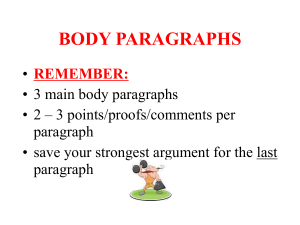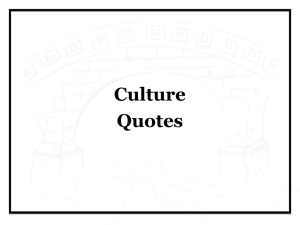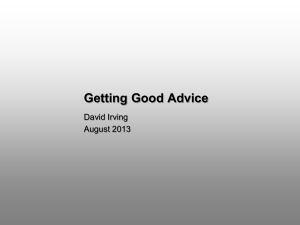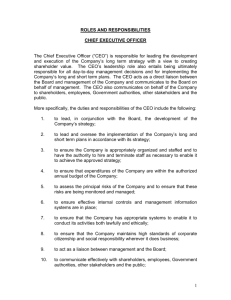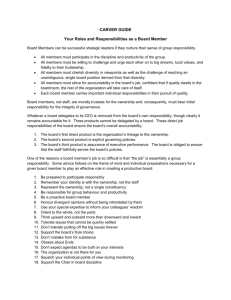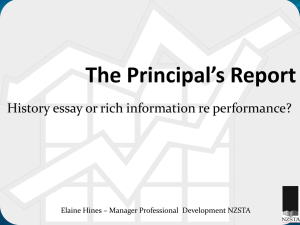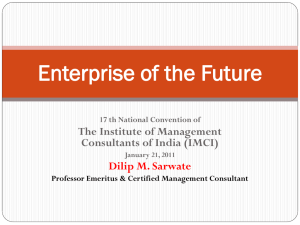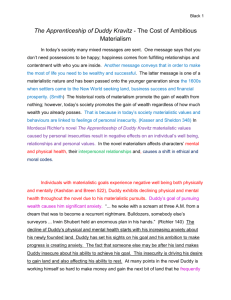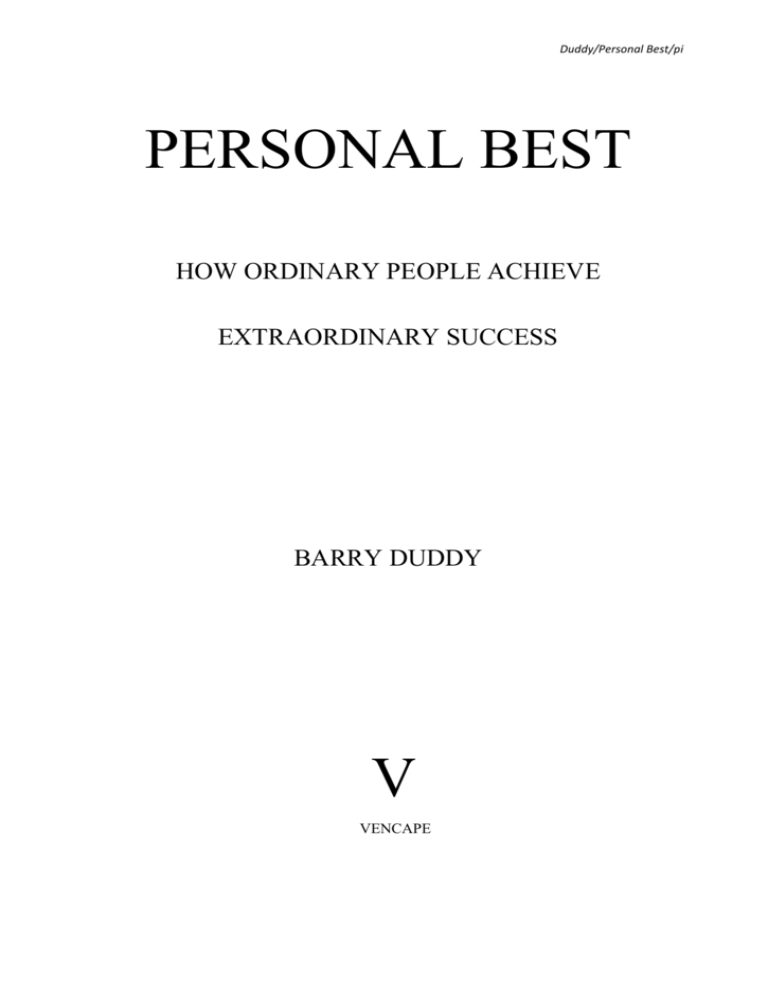
Duddy/Personal Best/pi
PERSONAL BEST
HOW ORDINARY PEOPLE ACHIEVE
EXTRAORDINARY SUCCESS
BARRY DUDDY
V
VENCAPE
Duddy/Personal Best/pii
PERSONAL BEST
First paperback edition printed 2012 in the United Kingdom by Vencape Publishing.
www.vencape.com
Copyright © Barry Duddy 2012.
All rights reserved. No part of this book shall be reproduced or transmitted in any form or by
any means, electronic or mechanical, including photocopying, recording, or by any
information retrieval system without the written permission of the publisher.
The moral right of Barry Duddy to be identified as the author of this work has been asserted by
him in accordance with the Copyright, Designs and Patents Act 1988.
A CIP record for this book is available from the British Library.
ISBN 978-0-957-4009-0-0
Printed in Great Britain.
Although every precaution has been taken in the preparation of this book, the publisher and
author assume no responsibility for errors or omissions. Neither is any liability assumed for
damages resulting from the use of this information contained herein.
For more copies of this book, please email: info@vencape.com
Duddy/Personal Best/piii
About the author: Barry Duddy is CEO of Personal Best Research, a personal development
and business improvement consultancy. Having built his own high growth business, he now
consults with individuals, companies and organisations to assist them in maximising their
potential. Personal Best was founded to share the knowledge and best practice from the shared
thinking of selected achievers, companies and organisations from around the world.
Find out more at www.personalbest.co.uk
Duddy/Personal Best/piv
Thank you for buying this book. Today you have touched the life of someone in need.
Every time a copy of Personal Best is bought, someone, somewhere in the world, benefits
directly through the funds raised and work done by Buy1GIVE1.
To find out more about this incredible charitable movement and how you can become involved
go to www.b1g1.com
Duddy/Personal Best/pv
Personal Best would not exist had it not been for the time and insights provided by a large
number of contributors who agreed to share their philosophies. Although some prefer to
remain anonymous, I thank them all for their contributions and I am indebted to those listed
below, who for no other reason than they felt that their ideas might benefit others, gave up
their time and dedicated their minds to assisting in building the central themes of this book.
Sir Frank Williams - Founder, Williams
Grand Prix
Lord Harris – Chairman, Carpetright PLC
Sir Chris Evans – Biotech’ Entrepreneur
Tony Hsieh – CEO, Zappos
Sir George Buckley – Chairman, 3M
Lord Michael Ashcroft – Former Chairman,
ADT
Sir Tom Farmer – Founder, Kwik Fit Group
Lord Neil Kinnock – Former Labour Leader
Dave Scott – Six times World Ironman
Champion and First Hall of Fame Inductee
Tony Fernandes – CEO, Air Asia
Mike Duke – CEO Wal-Mart
Trevor Baylis – Inventor
Lord Paddy Ashdown – Former Liberal Party Lynne Sedgmore – Executive Director, 157
Leader
Group
Baroness Pauline Perry
Mark Emalfarb – CEO, Dyadic
Baroness Susan Greenfield CBE –
Neuroscientist
Mark Turner – CEO, OC Group
Bernie Siegel – Author and healer
Martin Dunphy – CEO, Marlin Capital
Flemming Bligaard Pedersen – CEO Ramboll Maureen O’Sullivan – TD, Irish Parliament
& European CEO of the Year
Ron G Holland – Entrepreneur & Author
Michael Meacher – MP
Bob Kaplan – Author and Professor, Harvard Michael Smurfit – Chairman, Smurfit Group
Business School
Brad Feld – CEO, Foundry Group
Mike Gooley – Founder, Trailfinders PLC
Brian Bacon – CEO, Oxford Leadership
Lord Redesdale – Chairman, Carbon
Management Association
Duddy/Personal Best/pvi
Brianna Glenn – Athlete, USA
Nick Friedman – CEO, College Hunks
Hauling Junk
Bruce Perlowin – Entrepreneur and CEO,
Hemp Inc
Nick Jenkins – Director, Hansei Australia
Mark Allen – Six times World Ironman
Champion
Nigel Dessau – Chief Marketing Officer,
AMD
Cary Cooper – Singer/Songwriter
Nigel Evans – MP, Deputy Speaker
Charles Wigoder – CEO, Telecom Plus PLC Nirmalya Kumar – Author & Professor of
Marketing, London Business School
Chris Guillbeau – Author of Non Conformity Noel Grealish – TD Irish Parliament
& The $100 start up
Lord Chris Rennard – Former CEO, Liberal
Party
Baron Giles Radice
Craig Sams – Founder, Green & Blacks
Chocolate
Paul Dunn – Chairman, Buy1GIVE1
Dan Henry – CEO, Netspend
Paul Flynn – MP
David Alton, Lord Liverpool – Human rights Paul Kehoe – Minister of Transport Ireland
campaigner and author
David Meerman Scott – Author and CEO,
Freshspot
Pete Cowen – Golf Coach to Darren Clarke,
Lee Westwood and Padraig Harrington
David Novak – CEO, Yum
Rachel Elnaugh – Entrepreneur
Toni McIntosh – Scottish marathon champion Robert Edmiston – Chairman, IM Group
Deborah Myer – CMO, Pulte Group
Roger Smith – CEO, OBN Holdings
Doug Smith – CEO, Interim Partners
Ron Hill – Olympian and former Marathon
world record holder
Dr. Gerard Lyons – Chief Economist,
Standard Chartered Bank
Shama Kabani – CEO Marketing Zen
Finian McGrath – TD, Irish Parliament
Simon Clifford – Founder, Brazilian Soccer
Schools
Frank McKinney – Bestselling author and real Simon Tucker – CEO, SRT PLC
estate rockstar
Indro Mukerjee – CEO, Plastic Logic
Alan Edwards – CEO, Outside Organisation
Duddy/Personal Best/pvii
Prof Henry Mintzberg – Author and
management thinker
Ali Lukies – CEO, Monitise PLC
Jim Fleeting – Director, Scottish Football
Association
Anne Handley – Founder, Marketing Profs
Joasia Zakrzewski – Ultra runner and World Christian Bergmann – CEO Alegro Capital
Medallist
John Adair – Chair, United Nations Strategic Teresa Amabile – Author & Professor of
Leadership
Business Harvard Business School
John Redwood – MP, former Secretary of
State for Wales
Tom Chapman – Founder, Matches Fashion
Julian Richer – CEO, Richer Sounds
Lord Robin Butler
Carl Elsener – CEO, Victorinix
Lord Mackay – Former Lord Chancellor
Ken Maginnis, Lord Drumglass
Lord Selkirk
Charlotte Bray – Composer
Viscount Ellis
Lord Adam Patel – Entrepreneur
Dennis Skinner – MP
Lord Brian McKenzie
Abhishek Rungta – CEO, Indus Net
Technologies
Lord Eric Avebury
Jez Cox – Performance Consultant & Team
GB Duathlon Manager
Joseph Wan – CEO, Harvey Nichols
Jim Alder – Former Commonwealth Marathon
Champion
Errol Kerr – Olympic Skier
Dean Finch – CEO National Express
Duddy/Personal Best/pviii
Contents
Contents ................................................................................................................................ viii
Foreword by Sir Frank Williams ........................................................................................... 10
Introduction by Sir Tom Farmer ............................................................................................ 12
Part One: PERSONAL ............................................................................................................ 13
Chapter 1: Personal Best ......................................................................................................... 14
A commitment to being your best.
Chapter 2: Purpose ...................................................................... Error! Bookmark not defined.
The power of purpose and the two most important questions you will ever ask.
Chapter 3: Enthusiasm ................................................................ Error! Bookmark not defined.
How passion and energy drive your dreams.
Chapter 4: Resilience ................................................................... Error! Bookmark not defined.
Developing irresistible momentum and courage.
Chapter 5: Specialise ................................................................... Error! Bookmark not defined.
Identifying your niche and becoming an expert authority.
Chapter 6: Ongoing Improvement ............................................. Error! Bookmark not defined.
The commitment that underpins every great achievement.
Chapter 7: Nerve .......................................................................... Error! Bookmark not defined.
Break through uncertainty and tap into your undiscovered courage.
Chapter 8: Action ......................................................................... Error! Bookmark not defined.
The difference that makes the difference. Taking huge action and making huge gains.
Duddy/Personal Best/pix
Chapter 9: Leadership ................................................................. Error! Bookmark not defined.
What personal integrity really means and the essence of true leadership.
Part Two: BEST ........................................................................... Error! Bookmark not defined.
Chapter 10: Belief ........................................................................ Error! Bookmark not defined.
The omnipresent power behind the world’s greatest achievers and how to get it.
Chapter 11: Emulate.................................................................... Error! Bookmark not defined.
How to shortcut your way to success by tapping into the knowledge of others.
Chapter 12: Strategy.................................................................... Error! Bookmark not defined.
How to create a compelling life plan and make your dreams become your reality.
Chapter 13: Thinking .................................................................. Error! Bookmark not defined.
Realising the huge potential of your mind to shape your world and your future.
Chapter 14: Being your best ....................................................... Error! Bookmark not defined.
Your time to shine.
Duddy/Personal Best/p10
Foreword
Sir Frank Williams Founder & Team Principal, Williams Formula One Racing.
From my school days I was always fascinated by motor racing. I then found myself
gravitating more towards watching motor racing trackside, I met several fellow travellers and
fell in eventually with two well-to-do young men (which I wasn’t), called Jonathan Williams
(no relation) and Piers Courage.
I became for Jonathan, who was touring the continent every season with his racing car, his go
for this and go for that person and as a consequence I met other itinerant racing drivers, all
foreigners (at that time England was the source of nearly all motor racing equipment), so I
was being continuously asked, I’m happy to say, can you get me this, can you get me that?
Which I did, and brought back to the various continental races. A little business grew and
eventually I thought I could do this for a long time, make money and enter Formula 2 myself,
which I did and this then became Formula 1.
As for the motivation? It just happens. Anyone in racing will tell you the same thing, when
you’re a racer, you want to race. It’s not a conceited remark in anyway, there’s no turning
back because there’s nothing else I’d want to do it is the same for many people working at
Williams. It’s a wonderful human gift, which I’m exploiting! Speaking for myself, I just love
Formula 1, I love motor racing, love cars, love speed, I still love speed. It’s just a thing you
don’t have to think about it.
The most valuable and clever advice I’ve been given was given to me in my youth and of
course as you have probably been told by your father, when you’re young you think you
know everything and think you know best and it was the same with me – I learned by my
Duddy/Personal Best/p11
mistakes and if I was being fair and honest I’d say I had very good mentors along the way. I
must say, operating in Formula 1 you come across some formidable individuals, people who
are very clever, who are commercially very astute; Mr Ecclestone is the best example, very
clever people and if you have brains yourself you’ll learn from them.
The purpose of the sport is to be the best that you can be and to beat everybody. What goes
along with that of course is sometimes people are just a little bit better than you are and that
is called competition. Formula 1 is a competitive sport and a competitive business. All you
can do is your best each day.
Frank Williams
Sir Frank Williams has led Williams Grand Prix to nine F1 Constructors Championships,
seven Drivers Championships and more than one hundred Grand Prix race victories.
Duddy/Personal Best/p12
Introduction
Sir Tom Farmer – Founder Kwik Fit Group
To succeed in business, you must have enthusiasm, you must have energy and it has to be an
obsession, a magnificent obsession, an inner passion of your being.
The main thing stopping people is themselves, it is simple as that; there are opportunities out
there. You have to be sure you have a product and service that people want, but there are
opportunities out there every day of the week and if you have the ability, the self-motivation
and if you have done your homework beforehand, you will be able to give the time and
energy that’s required.
I often remind people that business isn’t about computers, it isn’t about fancy advertising
programmes or premises, it all is about people, the relationships with the people in your
organisation, the relationships with your suppliers, relationships with your customers, you
have to make sure that interpersonal relationships are right: it helps to overcome any
problem that may arise. So surround yourself with likeminded people, those people whose
company you enjoy and with whom you can build great relationships, by doing this you will
have great success. That’s how you can become your best.
Sir Tom Farmer
Duddy/Personal Best/p13
Part One: PERSONAL
Duddy/Personal Best/p14
Chapter 1: Personal Best
Faith is taking the first step even when you don't
see the whole staircase.
Martin Luther King, Jr.
Those who achieve great things in their lives are not superhuman. They are not genetically
superior and their backgrounds do not predict what they might accomplish. They do,
however, share a similar mindset and follow similar disciplines. Success leaves clues and
Personal Best is focused on identifying those traits and providing a blueprint to help anyone
make improvements in any area of their life.
This book has been written with the help of over two hundred people who agreed to be
interviewed or who shared their thoughts, key quotes from these achievers can be found
throughout this book. Personal Best is intended to show not only the primary factors in the
accomplishments of people who have achieved outstanding success in their lives, but also to
provide a roadmap to allow you to realise your own goals. That is the principle of this book.
Regardless of where you are in your life, no matter what you might want to achieve, by
committing to be your best and following the guidance provided by more than two hundred
successful people, you have a bulletproof methodology to realise massive and lasting
improvements. People who achieve things consistently are not that different from you, they
just have a different strategy. The first part of this book covers those essential traits and the
second part provides direct and proven methods that you can use to make leaps forward in
your life.
Duddy/Personal Best/p15
Success means different things to different people; it also means something different to each
of us as we move through life. Goals, values and aspirations can change, but whatever
success means to you – be it personal, financial, spiritual, related to your career, improving
your relationships, enhancing your health or all of these things – this book has been written as
a guide as to what works. It shows what achievers from a wide range of backgrounds do
consistently to realise their aims, and provides tools that allow you to duplicate their habits to
progress in your own life.
Personal Best can be used as a guide to become the very best that you can be
in any way that you might imagine.
The Personal Best ethos is based around doing what an athlete would do to achieve a personal
best time on the track. Rarely does anyone from the world of athletics improve by twenty per
cent overnight. An athlete commits to working to a set training plan, so that over a period of
time ongoing improvements will be made. The way that athletes improve is by doing a little
bit more every day, by stretching themselves in each session. The most incredible thing is
that when you work to a focused goal-orientated plan, even though the changes you make
seem relatively minor on a daily basis, the overall gains are incredible. They can happen
quickly, building momentum for more gains. Anyone who has children can relate to the
massive steps they take without us really noticing. When we meet someone who has not seen
our family for a while, they tend to comment on how much the children have grown or
matured and we have not noticed because we see our kids every day. Their progress is
gradual, so we are less aware of their development.
Personal Best People: Joseph Wan, Chief Executive, Harvey Nichols
“Just because you are born gifted or talented, that doesn’t mean that good things
will just come to you. Nothing will be given to you or fall to you from heaven. You
Duddy/Personal Best/p16
have to work hard if you are to realise your full potential. Today I am giving that
same advice to my own children.”
When I began my journey of interviewing some of the most successful people in the world, I
was keen to bring together the common threads of knowledge and habits they shared. The
main theme that I found in their stories (and something that anyone can immediately
duplicate), is that they ask a little more of themselves consistently. They push a little more,
stretching beyond what they had done previously. I found this to be true in business, politics,
spiritual leadership and financial achievement. They simply took responsibility, not only for
themselves and their own actions, but also when handling challenges and situations outwith
their direct control.
The contrast in the ability of some people to overcome difficult circumstances when others
cannot was shown starkly to me the day I met former Police Chief Superintendent and policy
advisor to the Government, Brian Mackenzie. He serves as a working peer in the House of
Lords and in this role he has the influence to help shape legislation that will become law. I
was keen to track his career and in particular to find out why he has worked so hard to change
certain elements of the statute book. Brian is proud of having shaped several key areas of
legislation and in particular the change in the law relating to double jeopardy. This was the
law that meant a person could not be tried twice for the same crime, even if new evidence
came to light. Brian was a passionate advocate for the abolition of this law, which he saw as a
persistent barrier to justice.
Brian told me that this had been on his mind ever since he served as a young police officer in
Durham, at the time a man called Donald Hume had escaped justice for the murder of a
business associate. He was tried for the killing but there was not enough evidence to secure a
conviction and he was acquitted of murder. Hume subsequently admitted the crime and sold
Duddy/Personal Best/p17
his story to a Sunday newspaper, describing in graphic detail how he had killed, dismembered
and disposed of his victim. Given that he had already been tried, the law could not touch him.
Hume then went on to kill a taxi driver in Switzerland some years later. The injustice of this
stayed with Brian, so much so that years later he became the driving force behind the change
in this law. That afternoon I had some downtime between interviews, so I did some research
on Hume’s background.
DONALD
Donald Hume endured a terrible childhood; this does not excuse his future heinous acts, but
perhaps explains the psyche of such an individual. Hume was abandoned by his mother soon
after birth and was sent to an orphanage. The institution he ended up in was bleak and no
compassion was shown to the young residents within it. They were regarded as the sons and
daughters of sinners and treated accordingly. Beatings and punishments were commonplace
and the owners even kept a parrot that shouted out the word ‘bastard’, just to remind the
children of what they were. The orphanage set the tone for the hatred that Hume would later
admit to feeling towards the world. When, at the age of seven, Hume lifted an axe and
attempted to attack a member of staff who was teasing him, he was transferred to live with an
aunt. Life did not improve much over the next few years as his aunt indulged her daughters
and treated him with coldness and contempt. Donald Hume’s hatred was compounded when
he discovered that his ‘aunt’ was in fact his birth mother, who had abandoned him and did not
now want to acknowledge him as her own. Hume left home as soon as he could and lived a
life of petty crime and larceny, culminating in his becoming a double murderer.
This is not a pleasant story and inevitably we will speculate on how his adult life might have
differed had he enjoyed a happy childhood.
Duddy/Personal Best/p18
GEORGE
I moved on to my next interview with a genial man in his sixties called George. He too had
been abandoned at a young age. His mother had given birth to him just after the war and soon
after she handed him to his grandmother who ran a boarding house in Sheffield. He was
brought up in grinding poverty with several of his brothers and sisters. Of the five of them,
only George and one sister lived beyond childhood. Chillingly, in later years George’s sister
checked the death certificates of their siblings, which may imply that infanticide could have
been the cause of their deaths. No charges were ever laid: such was life in the most poverty
stricken areas of post-war Britain.
When he was still a toddler, George’s grandmother offered him to a travelling family who
had happened to stay in her house for a few nights; George was given to these strangers and
separated from his brothers and sisters. The family George lived with were kind to him, but
the reality of their life was also one of harsh poverty and George’s life was itinerant and
directionless. At the age of five he was enrolled in school, but he had kidney problems and
also suffered from anaemia and chronic bronchitis, due in no small part to the penurious
existence that he lived. These physical afflictions meant that he was not permitted to attend
the local school (in those days any affliction could lead to segregation as a no-hoper and
being sent to a special school for such cases). George therefore had a limited education and
his tumultuous life became more complex when a woman claiming to be his mother
demanded that the family he lived with hand him back. They duly did so and despite not even
recognising his mother, having been away from her virtually since birth, George moved to a
new home with her and the man she now lived with, who became his stepfather. But his
mother soon left again, leaving George with his stepfather and stepbrother. From the age of
eight George pretty much fended for himself as his stepdad was either working or looking for
Duddy/Personal Best/p19
work. This lonely, impoverished life became worse when George’s stepbrother began to
sexually assault him and he was regularly attacked by the older boy. George became adept at
keeping an escape route available at all times when he was in the house, and he took to
wandering the streets rather than risk further attacks by staying at home.
At the age of fifteen George left school with no qualifications. He secured an apprenticeship
as an electrical engineer and he has an abiding memory of the man he was working with
attempting to explain circuitry and the basic workings of electricity to him. George was
stupefied. He simply could not comprehend what he was being told.
Personal Best People: George Buckley, Chairman and CEO 3M
“In life I decided that I could be a victim or a victor. I chose the latter.”
At this stage in his life, George had every right to hate the world and everyone in it. He had
been born into poverty and had been passed from home to home throughout his childhood.
He had suffered chronic illness, been denied a full education and had been subject to the most
unspeakable assaults. He had no qualifications and had received no guidance. All he had was
a belief that he held. George told me, ‘In life I decided that I could be a victim or a victor. I
chose the latter’.
The teenage George enrolled at a College of Further Education and studied there part-time for
several years while learning his trade during the day. He then went on to university where he
gained a doctorate in electrical engineering and secured a management position with British
Rail. Eventually George moved to the United States, after being offered a senior role with
Emerson Electric, and in 2005 he took over at the industrial giant 3M as Chairman and CEO.
Under Buckley’s stewardship the business has enjoyed sustained revenue and profit growth,
with annual revenues of over $26 billion. George is now regarded as one of the world’s top
Duddy/Personal Best/p20
business leaders, and needless to say he has been well rewarded for his stellar contribution.
He was knighted in 2011 for his services to business.
Two very different stories. Why is it that two people can experience similar circumstances
yet respond in different ways? Why is it that Donald Hume and George Buckley both grew
up through frightening and horrific childhoods, but one grew up to be double murderer, and
the other to be an extraordinarily successful businessman? The reasons for this will become
clear as you read through this book, but the primary reason lies in the thinking and mental
processing that each undertook.
Why positive thinking isn’t enough
You may at some point have read a book or gone to a seminar that promoted positive
thinking as a cure-all to bring happiness, joy and fulfilment into your life. These seminars
have merit and I believe anyone can benefit from building positive expectation as a habitual
way of thinking; however, this is only half the story. Positive thinking without concerted
intelligent action can lead to frustration and disillusionment. Positive thoughts are powerful
but can undermine the best-laid plans.
I live near the coast. It is a truly beautiful area and somewhere I am glad to call home.
However, in my part of the world, it rains, frequently, and in different ways. Heavy rain, light
rain, drizzle, sweeping-in-from-the-side rain, spitting rain and so on. Now, I could repeat
incantations that focus on the fact that it will not rain. I can repeatedly visualise that every
day will be warm and sunny and that I will enjoy nothing but pleasant weather. This will not
change the meteorological fact that it rains around one hundred and sixty days a year here. If
I have any sense, I know I had better wear a jacket, carry an umbrella and enjoy my day.
Duddy/Personal Best/p21
In life, it is the same; we do not have to throw our intelligence out of the window. We can
retain a positive expectation but still be ready to handle the showers if they come. Our
thinking will dictate what and who we become, so I am all for keeping that positive mindset,
without losing sight of the fact that I share the world with billions of others, who may be
thinking or desiring something else. Blinkered thinking which says things will always turn
out exactly as we want them to or that we will win the prize and everyone else will lose is not
only limiting, but self-defeating. This attitude can still be found in individuals, organisations
and companies. I admire the sheer force of desire to make something happen, but if two
people or companies are chasing the same thing, who wins? If there can only be one number
one, whose positive thinking is more powerful? Personal Best gives you an intelligent way of
enjoying fast progress, by employing the tools used by everyone who has achieved notable
success. Without pushing aside your native intelligence, it allows you to keep running
towards all the things you want in life and to do so with balance and integrity.
THE TORPEDO
Richard Thompson realised that he was a quick runner when he was about eight years old. He
found himself able to beat kids much older than him as they raced across the school yard in
his home town of Cascade in Trinidad and Tobago. He used this speed to great effect on the
football field, becoming an accomplished player with a turn of pace that left defenders in his
wake. As he got older, Richard decided to concentrate on track and field rather than football.
He won a number of races during his college years and was disappointed not to qualify for
the Trinidad and Tobago national team during the 2005 Central American Games in Nassau.
However, by working with an experienced coach and dedicating himself to his training, he
eventually improved his 100 metre time from 10.47 seconds in 2005 to 10.09 in 2007. His
performances were good enough for selection into the team that travelled to the World
Duddy/Personal Best/p22
Athletics Championships in Osaka, Japan that summer. Richard qualified from his first heat,
but did not manage to get past the second round where he finished last of the eight runners
chasing the qualifying places for the final. His mood was upbeat though; he was getting faster
and was still only twenty-two. At his age he still had time to mature and get stronger. In fact
many sprinters still perform superbly well in their thirties.
Richard’s main goal was to qualify for the team that would travel to the Olympic Games a
year later in Beijing. After a good winter season, including a new personal best over 60
metres at an indoor event, his 2008 place on the Olympic team was confirmed and he
travelled to participate in the 100 metres, where he would be pitted against the best in the
world. After the previous year’s effort, Richard was determined to make the final eight,
although this was a difficult task, given the calibre of the athletes he would be up against. But
he was running well and his confidence was high; he believed himself capable of making the
Olympic final, which would be an achievement beyond that which many commentators
expected. Richard won his first heat and qualified for the quarter finals. He knew that he
would have to run to the top of his ability now as he was lined up against other world class
sprinters who had come through their heats, including Tyson Gay, the American champion.
Richard breezed through in an astonishing 9.99 seconds. He was delighted. Rarely do athletes
peak at exactly the right time, but he had. He was running strongly and felt he might have a
little more in him. He was in the semi-finals, one race away from his goal and a place in the
final of the Olympic Games.
When the gun went in his semi-final heat, Richard got out of the blocks beautifully, quickly
hit his stride and pushed through halfway strongly. He powered through the last fifty metres
to finish second behind renowned Jamaican sprinter Asafa Powell in a new personal best time
of 9.93 seconds. Incredibly he had done it; by pulling out the performance of his life he had
not only qualified for the Olympic final but had also achieved a time that even he had
Duddy/Personal Best/p23
doubted he was capable of. No one can ask more of themselves than to push further than they
have ever done previously. Not everyone can be top of the class or become President, or win
the gold medal, but by taking massive, intelligent action we are all capable of achieving
things that might seem beyond our current abilities.
The Olympic final of 2008 was much anticipated and as it turned out it was an historic event.
The world’s greatest sprinter Usain Bolt powered down the track in a breathtaking 9.69
seconds. Even by the high standards Bolt had set himself this seemed almost superhuman.
The distance between him and the rest of the field was large and still growing as he started
celebrating his victory ten metres before the finish line. It was incredible to witness an athlete
smashing the world record in such a seemingly effortless style. What about Richard? Well, he
scored yet another massive personal best, flying down the track in 9.89 seconds. He not only
achieved another PB, his second in as many days, but he also secured the silver medal and
became a national hero in his homeland.
Should Richard celebrate his incredible achievement or should he be disappointed that he
finished second? Should he look at his progress and the huge accomplishment of running
faster than he had ever done in his life, or be down because he had finished behind the fastest
man on the planet? This is what Richard said in an interview immediately after the race.
“Words cannot describe how I feel right now. This is just a dream come true for me. I have to
tip my hat to Usain Bolt; he's a great competitor, a phenomenal athlete, and there was no way
anyone was going to beat him with a run like that. But it just feels good to come here, run in
the Olympic Games, my first Olympic Games, win a silver medal and run a personal best at
the same time. I couldn't ask for anything more, thank God."
Duddy/Personal Best/p24
The ethos of Personal Best
Your life is about private and personal victories. Maybe you don’t go home with a gold
medal, but if you do more than you ever thought possible, you have made progress and
gained pride in the personal success of having done something you had never achieved
before. If you can do a bit more, be it in the workplace, or within the home, if you strive just
to be better than you were before, your life will open up and you will progress more than you
could ever imagine. This commitment to ongoing improvement can be the cornerstone to
incredible achievement. When you set a goal and move towards it by taking daily actions
focused on its attainment, then you are working to a Personal Best ethos. If you have a clear
target and you take ongoing, relentless action – constantly improving yourself, constantly
asking more of yourself – then you will undoubtedly achieve your goals, faster and more
effectively than you ever thought possible.
Personal Best People: Sir Frank Williams Founder Williams Grand Prix
“The purpose of the sport is to be the best that you can be and to beat everybody.
What goes along with that of course is sometimes people are just a little bit better
than you are and that is called competition. Formula 1 is a competitive sport and a
competitive business.”
There is not one person of note that I interviewed who didn’t admit to stretching themselves
at some point in their lives and usually on an ongoing basis. They consistently did that which
they hadn’t done before. Often they had no frame of reference, having had no previous
experience or any reason to believe they could conceivably achieve their goal. They just
decided on what they wanted, and the way they achieved it was by a process of ongoing
improvement. We know this makes sense in all fields of endeavour. In sports you might
Duddy/Personal Best/p25
struggle to run to the end of your street, but if every day you try to go fifty yards further than
the previous day, then day by day, week by week, you will build your strength. In short order
you will be running for miles. You will be capable of doing a marathon. There is no secret
behind it. It is just a case of doing a little more every day. The Personal Best method is
simply a commitment to ongoing improvement and it is a quality that I found in everybody I
spoke to. What keeps a sportsperson motivated? Once they have won everything they can,
why do they keep going? Once somebody becomes a millionaire or even a billionaire, what
drives them forward? Once somebody has written a scientific paper that changes the world,
why do they keep going to work? The reason can be found in the deep-rooted sense of
purpose that such people have and also in the love of what they do. They have an absolute
unending commitment to being the best they can be. They want to stretch themselves and ask
more of themselves. They want to find out what they are capable of, to discover what more
they can achieve. That is what makes the difference. It is behind every great story and behind
every success that I found during my research. Great people don’t become great by accident.
They just ask a little bit more of themselves.
Setting the standard
This is what is truly exciting. If one person can do something, then so can you. If you follow
the same methodologies as someone who excels in their field, you will also succeed. The key
distinction between people who seemingly come from nowhere to outstanding achievement is
that they set higher standards. Admittedly there are key drivers and strategies that they
employ (which will be outlined as you continue reading), but these can be duplicated.
Fundamentally the question to ask of yourself is: are you willing to set yourself a higher
standard and commit yourself to achieving it? This doesn’t mean having to make a quantum
leap overnight. It simply means consistently making small improvements to relevant areas of
your life, be it business, finance, fitness, health, family or relationships. If you just try to
Duddy/Personal Best/p26
become a little bit better at what you do each and every day, then the success you will
experience will astonish you. Once you decide that you will be your best and you take
appropriate daily actions, you will look back on each day and see that you have attained more
than you ever have before. Do this every day and you will have a good week. Do this every
week and you will have a good month. Every year you will take strides towards the greatest
dreams of your life. And when you look back on the tapestry of your life, it will be one of
achievement and fulfilment.
The way to attain anything you want in life can be summed up in a simple way. Decide the
price that needs to be paid and pay the price. Achieving each goal may not be easy, but it is
simple. It might mean pushing yourself when you would rather take the day off. It might
mean working harder. It might mean developing more understanding. Whatever it means, if it
takes you to where you want to go, it is a price worth paying.
The people I spoke to during my research came from all walks of life, but the one thing they
had in common was an absolute commitment to continuous improvement. Whether
consciously or subconsciously, they just became better at what they did over a period of
years. They continually asked more of themselves and consequently achieved their aims.
Becoming better at something doesn’t have to be painful but it does have to
be consistent.
Personal Best is centred on giving you an intelligent plan to help drive you towards your
personal goals. Nothing in life feels as good as knowing you are getting better. It is such a
fundamental need for all of us; it is what keeps people going. If you know that you are
expanding your horizons, if you feel that you are getting better every day, it is life-enhancing.
It is the essence of life.
Duddy/Personal Best/p27
Personal Best People: Baroness Pauline Perry, Former Chief Inspector of Schools
and first woman to run a British University
“Ambition is not a bad thing.”
As humans, we have excelled due to our self-awareness and consciousness. We have always
looked to improve ourselves and our environment; both as individuals and within societies
we look to develop and move forward. Our progression as a species has been incredible over
many thousands of years. In more recent times, technology has constantly pushed the
boundaries of our knowledge, of our medical capabilities and of virtually any area that we
care to think about. We are living in contradiction to our values if we do not work towards
being our personal best each and every day. Taking progressive action is the only way that
we can improve. If we act strongly, wilfully and consistently, our actions will become
habitual. If we want to experience joy in our lives, we have to be sure that we are constantly
improving. It is when things stay still or when we think that we are not making progress that
we become frustrated. Something I feel sure you will agree with is that the world around us is
constantly changing. The corollary to this, which we sometimes miss, is that we have to be
constantly changing with it. Better still, we have to be constantly improving. Believe me, we
are not standing on the side of the hill. We are either marching up it or we are sliding down.
If we put a thousand pounds in the bank and go back a year later, the thousand pounds will
still be there but it will have less value. If nothing else, inflation will take a chunk out of it.
So it is with our lives. We are either moving forward or sliding backwards. There is no
stationary point.
When people talk about someone’s overnight success, they don’t always see the commitment;
they don’t see the ongoing improvements that were made in that person’s life. They just see
Duddy/Personal Best/p28
the success, and that person coming from nowhere into the public consciousness. But we are
all intelligent enough to know that there is always a story behind the story. There are the
unheralded moments in that person’s life when he or she pushed a little harder, invested more
time, became dedicated to improving skills and committed to being their best. Sometimes
people look at that type of individual and say, “Look how lucky they are.” But as Gary
Player, the great South African golfer said, “The harder I practise, the luckier I get.”
Raising the bar
Personal Best People: Sir Tom Farmer Founder Kwik Fit Group
“The main thing stopping you is yourself. I am absolutely serious about that. There
are opportunities out there. You just have to go and find them.”
I believe passionately that you should set incredible, mind-expanding goals and that you
should paint vistas for your life that perhaps don’t seem believable. If you have a big enough
reason to achieve what you want, you will find a way to achieve it. However, one of the
issues which many people have when they set goals or when they set out to achieve
something, is that their objectives seem so far away. The journey of a thousand miles may
well begin with the first step, but a thousand miles is still a hell of a long way. So people set
out with good intentions but they set such a lofty, ambitious goal that they become
overwhelmed by it. The initial excitement of setting their aim can dissipate quickly when
they come to terms with the magnitude of what has to be done to achieve it.
The other challenge which people face when setting major goals is that they simply don’t
believe them. They may well set out to achieve their aims, but a small voice in their head tells
them they are trying to achieve something that is beyond their reach. Consequently they
wonder whether it is worth even starting on the journey towards their goal.
Duddy/Personal Best/p29
Personal Best People: Ronald Kers, CEO Muller Dairies
“Since the age of 28, I have always had clear goals and milestones planned for my
personal life in terms of what I want to achieve. This included areas like
professional, family, society, friends, and purely "me". I have tried to stick to these
milestones and so far I have to say that most of what I planned, especially in terms
of professional and family I have accomplished either ahead of time or on time and
to the level I expected.”
The fantastic thing about committing to be your personal best is that all you have to do is just
get a little better in the areas relevant to your goals. If you are going to start that business then
all you need to do every day is to take small steps towards realising that dream. If you are
going to write that book, then commit to writing as many words as you can each day. These
things are believable. Simple acts that you can complete comfortably will bring you closer
each day to your ultimate goal. Taking these important, incremental steps means that before
long you may well have created the next breakthrough business or written the next great
novel. Who knows where it can take you?
So, set ambitious goals, but commit yourself to smaller actionable steps. What small actions
can you take that will move you towards your goals? What knowledge can you gain each and
every day that will get you there? What information do you need and where will you find it?
All you need to do is day by day, week by week take steps towards what you want to achieve
in life. This is maybe the most important promise you will ever make. A promise to ongoing
improvement, a commitment to being your best is what will make the difference in your life.
Opportunities and happenstance start moving in your favour and you will begin noticing that
you are simply becoming better at what you do.
Duddy/Personal Best/p30
So let’s move forward. What are the key qualities that successful people have used to attain
fantastic results? There are many traits that the very best shared with me. In outlining them
here, we can look to elicit these core strategies, and having done this we can build a system, a
way of acting that will deliver us the same results.
How it fits together
Throughout the book you will see Personal Best quotes from those who committed their time
and gave vital insights as to which habits and strategies work for them. The themes common
to virtually everyone I spoke to, studied and interviewed are covered in the first part of this
book, which I have labelled PERSONAL:
Purpose
Enthusiasm
Resilience
Specialise
Ongoing improvement
Nerve
Action
Leadership
Every one of the achievers I spent time with was driven by a purpose, somewhat larger than
their own ego or self-interest. They had an enthusiasm and passion for their subject matter
and had shown resilience when circumstance turned against them. They were all specialised
Duddy/Personal Best/p31
and skilled in their area of expertise – but don’t confuse skill with talent. We will look at this
area and the strength of practise over natural ability. All were committed to the process of
ongoing improvement and showed nerve; that is to say they faced their fears when they
found themselves in difficult situations; they had the courage to take the necessary actions to
stay the course. Finally they were all leaders, although not exclusively in the traditional sense
of leading others; they excelled in leading themselves, through self-discipline and personal
integrity. They demanded more of themselves than anyone else could reasonably have done.
The second part of this book, which I have labelled BEST, shows the key tools we can use to
make giant steps in our own lives.
Belief
Emulate
Strategy
Thinking
If you employ these methods, they will allow you to shortcut years of learning, by tapping
into the mindset and the thinking patterns of the very best that have gone before you. In this
section, we will look at the power of beliefs, the core beliefs which you have to either
catapult you forward or hold you back. We will study how the best usually got that way by
emulating someone else’s success; to some degree they either modelled themselves on
someone, or a key person made a huge impact on their lives. You will also require a strategy,
a means of putting into place a compelling life plan to drive you forward. Finally, we will
examine your capacity for thinking; what your mental state is, day in and day out, and how
this can be altered to make you a different person.
Duddy/Personal Best/p32
Throughout the book I’ll ask some questions of you. To start your journey all you need do is
grab a pen and note down your answers to these questions. Make that promise to yourself
now. If you have ever not followed through or fallen short of what you could be, decide now
that you will do one thing. As well as reading the information in this book, you will act on it
by thinking about these questions. It is a small commitment and if you take the time to
consider these questions, you will start to tap in to your own most vital resource, your mind,
and become closer to achieving a new way of living, of being your best.
Let’s begin by looking at the biggest driver of success throughout time immemorial. The one
that every single person I spoke to has a huge sense of and feeling for.
Purpose.

